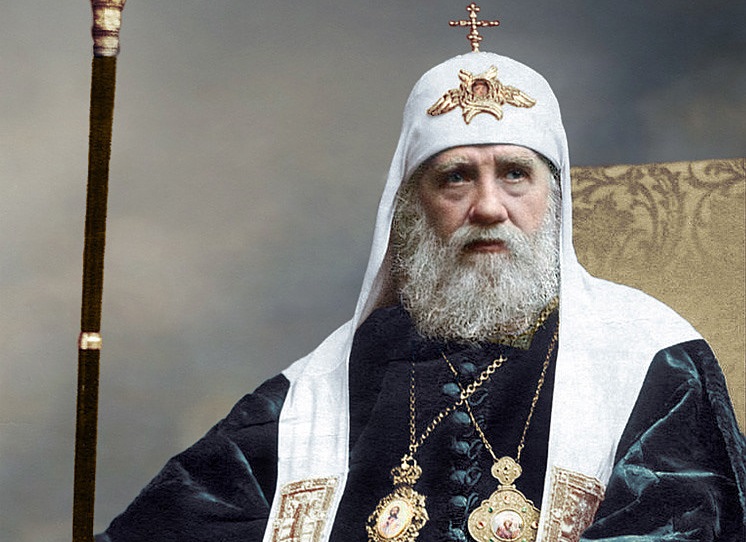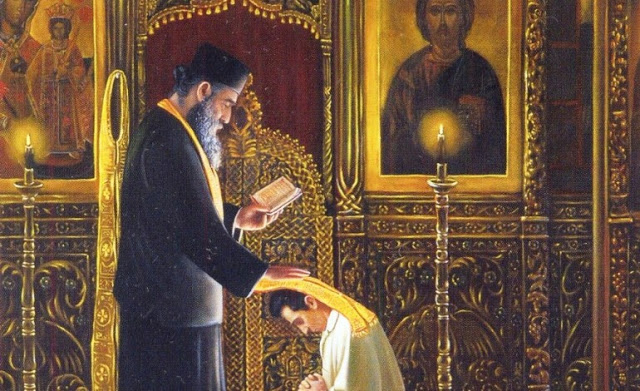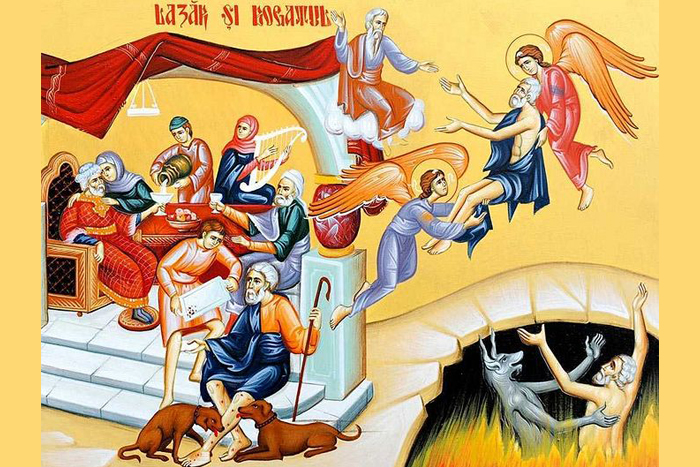
The whole state machinery was up in arms against him while he continued to save the Church against all odds. The Bolsheviks him behind bars, and his closest friends and allies turned away from him at that very moment. Yet he forgave all those who came to their senses and repented, bringing them back into church communion.
Bishop Tikhon became the Patriarch of Moscow and All Russia at one of the darkest moments in Russia’s history. The old imperial order had collapsed. Russia was on the brink of a civil war. The new rulers were hostile towards the Church and the clergy. Their policies quickly escalated to open persecution and killing of Christians. In these desperate times, the Patriarch knew full well that he had nothing to expect but great sorrows and little to look forward to but a heavy burden of responsibility.
On the day of his election as Patriarch, he said, “Your letter of my election as Patriarch was to me like a scroll with words of lament and mourning and woe written on both sides of it that the Prophet Ezekiel was told to eat (Ezekiel 2:10, 3:1). How much lament and mourning will befall my lot as Patriarch, I do not know.”
He condemned the persecution and terror against Christians in public, and the abyss between him and the authorities widened. Effectively, he became persona non grata for the new rulers.
The Bolsheviks instigated a dissident movement of “church modernisers”. The dissidents opposed the Patriarch and supported the Bolsheviks. They welcomed the arrests of Tikhon’s supporters, confiscation of church buildings and their handover to the dissidents.
A church schism began. The authorities arrested Patriarch Tikhon on 5 May 1922 and held him in custody at the Donskoy Monastery.
While the Patriarch’s was in prison, many bishops and other clergy turned away from him and joined the “modernisers” in the face of intense pressure and difficult circumstances. Some of them had been his close friends and collaborators. By the end of 1922, two-thirds out of Russia’s thirty thousand active churches were in the hands of the schismatics. However, most believers did not support the schism. Realising the failure of their plan, the Bolsheviks released Patriarch Tikhon after three years of imprisonment.
Patriarch Tikhon served at the churches of Moscow, gathering large numbers of believers. The bishops and clergy who had once betrayed Tikhon also flocked to his cell, in repentance. The patriarch acted wisely. He did not turn them away, but asked for a public apology.
The Metropolitan of Vladimir and Shuya Sergius was a prominent example of a hierarch who repented in public for breaking away from the church and encouraging many other hierarchs and clergy to do the same. Plain-clothed, he stands at the altar before Patriarch Tikhon. The church is full of people. In a shaking voice, he asks him for forgiveness with a deep bow. The Metropolitan returns to him his priestly vestments and insignia – the white Klobuk, Panagia with the Cross, the mantle and the rod. At first, Tikhon regards him with sadness, but finally a smile appears on his face. He greets Metropolitan Sergius jovially: “So you broke away from me too, old man?” Unable to keep a straight face anymore, they embraced each other and cried.
Translated by The Catalogue of Good Deeds
Source: https://foma.ru/kak-i-kogo-proshhali-svyatyie.html



